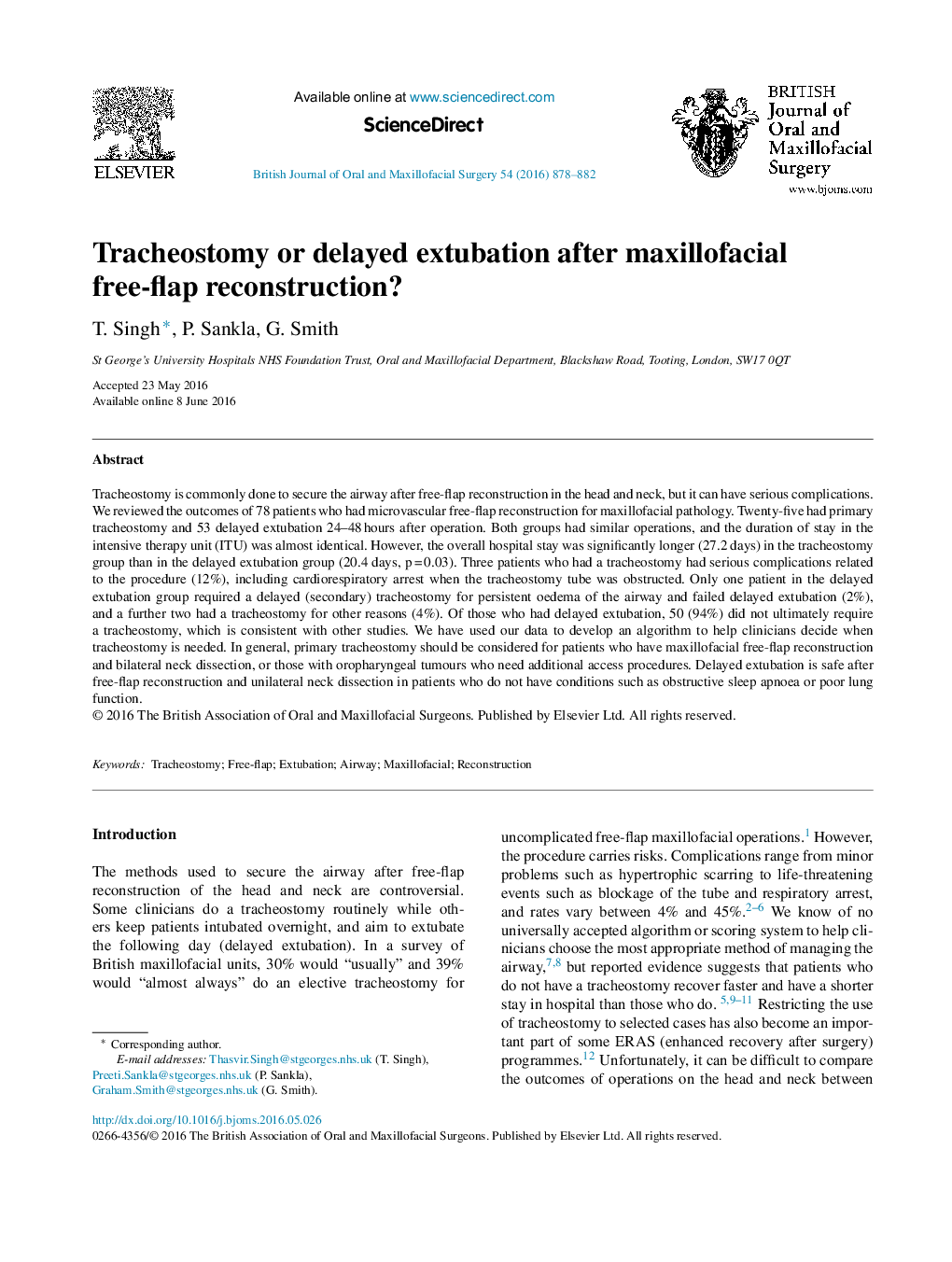| Article ID | Journal | Published Year | Pages | File Type |
|---|---|---|---|---|
| 5638660 | British Journal of Oral and Maxillofacial Surgery | 2016 | 5 Pages |
Tracheostomy is commonly done to secure the airway after free-flap reconstruction in the head and neck, but it can have serious complications. We reviewed the outcomes of 78 patients who had microvascular free-flap reconstruction for maxillofacial pathology. Twenty-five had primary tracheostomy and 53 delayed extubation 24-48 hours after operation. Both groups had similar operations, and the duration of stay in the intensive therapy unit (ITU) was almost identical. However, the overall hospital stay was significantly longer (27.2 days) in the tracheostomy group than in the delayed extubation group (20.4 days, p = 0.03). Three patients who had a tracheostomy had serious complications related to the procedure (12%), including cardiorespiratory arrest when the tracheostomy tube was obstructed. Only one patient in the delayed extubation group required a delayed (secondary) tracheostomy for persistent oedema of the airway and failed delayed extubation (2%), and a further two had a tracheostomy for other reasons (4%). Of those who had delayed extubation, 50 (94%) did not ultimately require a tracheostomy, which is consistent with other studies. We have used our data to develop an algorithm to help clinicians decide when tracheostomy is needed. In general, primary tracheostomy should be considered for patients who have maxillofacial free-flap reconstruction and bilateral neck dissection, or those with oropharyngeal tumours who need additional access procedures. Delayed extubation is safe after free-flap reconstruction and unilateral neck dissection in patients who do not have conditions such as obstructive sleep apnoea or poor lung function.
